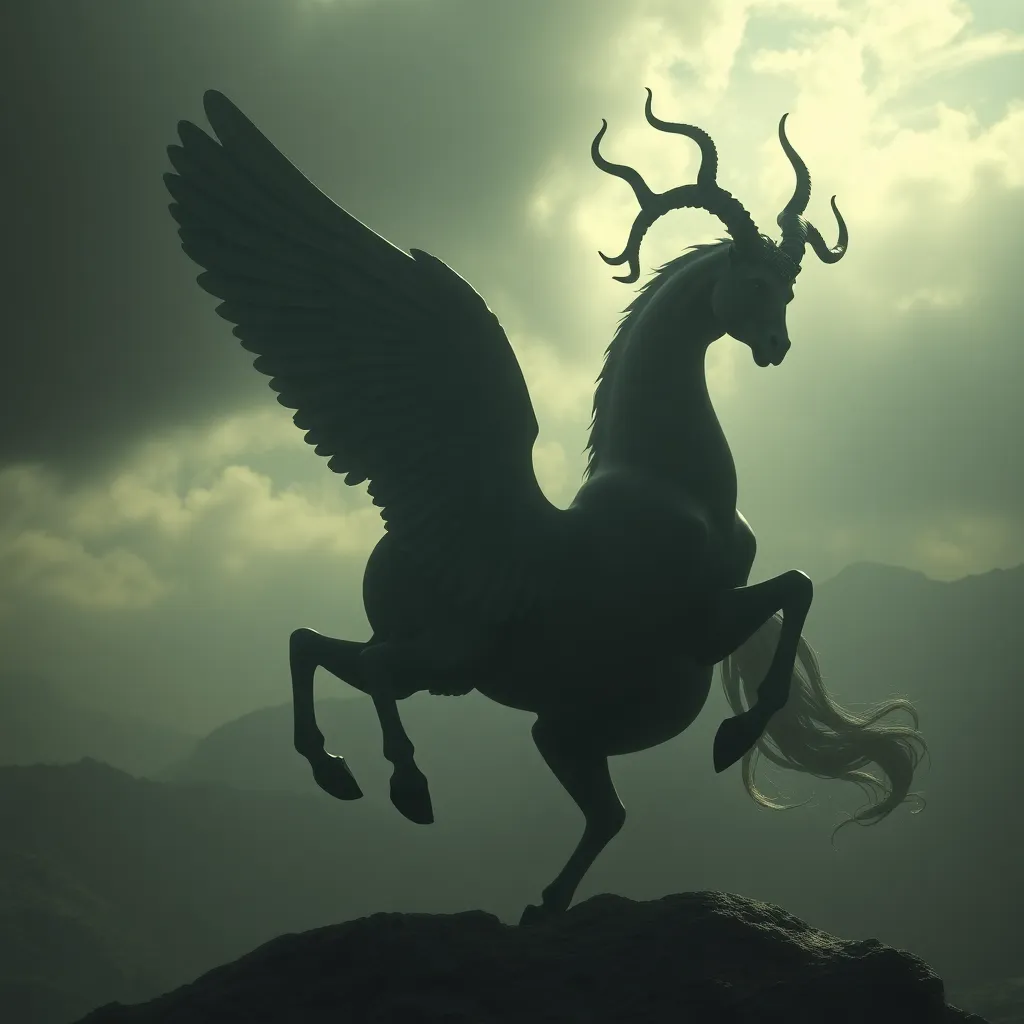The Wendigo’s Moral Dilemma: Examining the Ethical Implications of the Wendigo’s Actions and Motives
I. Introduction
The Wendigo is a powerful and haunting figure in Indigenous folklore, particularly among the Algonquin tribes of North America. Described as a malevolent spirit associated with winter, famine, and cannibalism, the Wendigo embodies the dire consequences of unchecked greed and desperation. This article aims to explore the ethical implications of the Wendigo’s actions and motives, framing it within the concept of moral dilemmas faced by individuals in extreme circumstances.
II. The Wendigo Myth: Origins and Characteristics
The Wendigo legend has deep historical roots in the oral traditions of various Indigenous tribes. Initially, it was a cautionary tale warning against the dangers of greed and selfishness. Over time, the Wendigo has evolved into a symbol of the dark side of human nature.
A. Historical background of the Wendigo legend
The origins of the Wendigo myth can be traced back to the Algonquin tribes in the northeastern United States and Canada. The legend likely arose in response to the harsh winters and food scarcity, highlighting the moral consequences of resorting to cannibalism in desperate times.
B. Physical and psychological traits of the Wendigo
The Wendigo is often depicted as a gaunt, emaciated creature with an insatiable hunger for human flesh. Its appearance is a physical manifestation of its gluttony and greed, reflecting a psychological state of eternal hunger and despair.
C. Cultural significance and interpretations across different Indigenous tribes
Across various Indigenous cultures, the Wendigo serves as a symbol of the dangers of losing one’s humanity. It is often used as a cautionary tale to promote communal values and discourage behaviors that could disrupt the social fabric.
III. The Nature of the Wendigo’s Hunger
At the heart of the Wendigo legend is its insatiable hunger, which raises significant ethical questions about survival and morality.
A. Analysis of the insatiable hunger for human flesh
The Wendigo’s desire for human flesh can be seen as a metaphor for extreme greed. It symbolizes a hunger that cannot be satisfied, no matter how much is consumed, reflecting the continuous cycle of desire and consumption in human nature.
B. The symbolism of cannibalism in the context of survival
- Cannibalism, as depicted in the Wendigo myth, serves as a stark reminder of the lengths to which individuals may go in dire circumstances.
- This act raises questions about morality: is survival worth sacrificing one’s ethical beliefs?
C. Comparing the Wendigo’s hunger to human greed and consumption
The Wendigo’s insatiable hunger can be compared to modern societal issues such as consumerism and capitalism, where the pursuit of more leads to moral decay and environmental destruction.
IV. The Transformation into a Wendigo
The transformation into a Wendigo is not merely a physical change; it encompasses profound psychological and spiritual implications.
A. Psychological and spiritual implications of becoming a Wendigo
Becoming a Wendigo signifies a loss of humanity and a surrender to primal instincts. It raises questions about identity and the nature of the self when faced with overwhelming desperation.
B. The role of isolation and desperation in the transformation
Isolation often plays a critical role in this transformation. In extreme situations, individuals may become disconnected from their communities and morals, leading to their descent into Wendigo-hood.
C. Ethical considerations of loss of agency and moral responsibility
When a person becomes a Wendigo, they lose their moral agency. This raises ethical dilemmas about accountability and the impacts of societal pressures on individual actions.
V. The Wendigo as a Reflection of Human Fears
The Wendigo can be viewed as a metaphor for various societal fears and challenges.
A. Exploration of the Wendigo as a metaphor for societal issues (e.g., capitalism, consumerism)
The Wendigo embodies the dangers of unchecked consumption and the consequences of prioritizing individual desires over communal well-being.
B. The Wendigo’s actions as a critique of human nature
Through its actions, the Wendigo critiques the darker aspects of human nature, such as greed, selfishness, and the willingness to harm others for personal gain.
C. How the fear of the Wendigo reflects deeper ethical concerns in society
The fear of the Wendigo serves as a cautionary tale, reminding society of the potential consequences of moral decay and the importance of maintaining ethical standards.
VI. The Moral Complexity of the Wendigo’s Actions
The actions of the Wendigo present intricate moral complexities that challenge our understanding of ethics.
A. The conflict between survival instinct and moral codes
At its core, the Wendigo myth highlights the struggle between the instinct to survive and adherence to moral codes. This conflict is central to many ethical dilemmas faced by individuals in crisis.
B. The implications of the Wendigo’s existence on community ethics
The presence of a Wendigo can disrupt community ethics, forcing individuals to confront difficult choices that test their values and beliefs.
C. Case studies of Wendigo encounters: ethical dilemmas faced by victims and communities
Numerous stories depict encounters with the Wendigo, illustrating the ethical dilemmas that arise when survival clashes with moral imperatives.
VII. The Wendigo in Modern Culture and Ethics
The Wendigo continues to be a relevant figure in modern culture, influencing literature, film, and ethical discourse.
A. The portrayal of the Wendigo in literature, film, and media
Modern interpretations of the Wendigo often explore themes of isolation, madness, and the human condition, further enriching its mythos.
B. How modern interpretations shift the moral narrative of the Wendigo
Contemporary portrayals of the Wendigo can shift the moral narrative, often emphasizing psychological horror and the fragility of humanity.
C. The relevance of the Wendigo myth in contemporary ethical discussions
The Wendigo myth remains relevant as it prompts discussions about ethics in situations of scarcity, societal greed, and the human capacity for evil.
VIII. Conclusion
In exploring the ethical implications of the Wendigo’s actions and motives, we uncover a rich tapestry of moral dilemmas that resonate with contemporary issues. The Wendigo serves as a cautionary tale, reminding us of the potential consequences of our actions and the importance of maintaining our humanity in the face of desperation. Understanding these moral dilemmas within folklore enriches our comprehension of human nature and the ethical challenges we face in society today.




